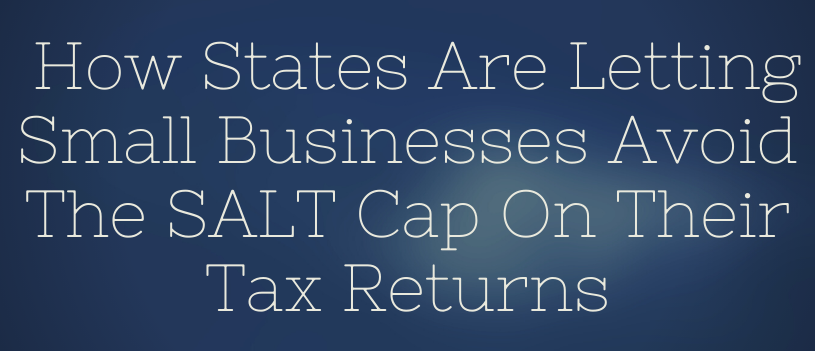Many states are coming up with ways to help taxpayers evade a restraint on a significant income tax break. An example of a way states are doing this is by allowing businesses, instead of paying income tax at a personal level, to pay it at the entity level. This has allowed that income to not count towards the SALT (State and Local Tax) cap and has been wisely called the pass-through entity (PTE) tax. In doing this many taxpayers are able to reduce more of their taxes from their own personal income.
More and more states are trying to adopt this workaround as they are finding that the SALT cap has served them less and less, even Congress is reflecting this concern. While it would be nice for the SALT cap to be dropped completely, like most things, it takes time. As most federal law makers find, it is increasingly difficult to implement a cap or broad law regarding finances as each state has a different cost of living, market, and gross income.
On the opposite end of this issue, even PTE is not a solid option that works well for each state. This effects everyone differently even within the same industry, holding partners of a firm at a different standard of exemption than an executive assistant in that very same firm who would receive no exemption from the SALT cap.
In the meantime, it seems as though PTE is catching momentum as it does not hold the states liable for taxes that residents are able to reduce at the federal level. Although, it makes state taxes messier, it seems as though more and more residents and Congressmen are willing to stand up and work to overturn this cap.
